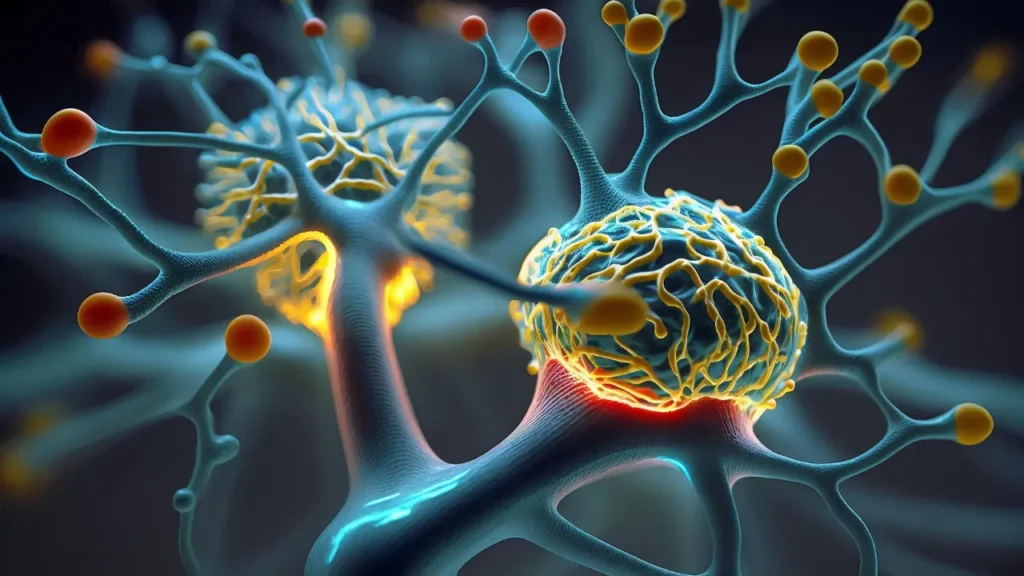Syrian Rue is scientifically known as Peganum harmala. It is a plant native to Eastern Iran and India. It has long been utilized in many cultural rites and therapeutic practices, but it has recently received attention for its possible nootropic effects, particularly in terms of increasing alertness, focus, and cognitive function. This page delves into the chemical ingredients of Syrian Rue, their pharmacological activities, health benefits, recommended dosages, potential adverse effects, and interactions with other substances.
You May Also Like:
Diamond CBD Gummies vs. Joy Organics CBD Gummies
Sunmed CBD vs. Partnered Process CBD: Finding the Best CBD for Sleep
Syrian Rue (Peganum harmala): Benefits, Dosage, Side Effects, Drug Interactions, and Other Important Information is an original (NootropicsPlanet) article.
Nature of Syrian Rue
Syrian Rue grows in arid, semi-arid, and wasteland environments, with small, white blooms and capsule-like fruits holding numerous little, angular seeds. These seeds are the most pharmacologically active portion of the plant, carrying a wide range of alkaloids with substantial psychotropic and therapeutic qualities. Syrian Rue has long been employed in traditional medicine and other cultural traditions due to its medicinal and hallucinogenic properties.
Health Benefits of Syrian Rue
Syrian Rue has been noted for a range of health benefits, which stem from its rich content of alkaloids like harmine, harmaline, and tetrahydroharmine. These compounds are associated with various physiological and psychological effects:
- Cognitive Enhancement: One of the most sought-after benefits of Syrian Rue is its potential to enhance cognitive functions such as memory, learning, and attention. The inhibition of MAO-A increases the levels of neurotransmitters like dopamine and serotonin, which can help improve focus and mental clarity.
- Mood Improvement and Antidepressant Effects: Syrian Rue’s ability to increase serotonin and norepinephrine levels through MAO-A inhibition makes it a potent natural antidepressant. These effects can be beneficial in treating mood disorders such as depression and anxiety, providing a mood boost and enhancing overall emotional well-being.
- Antioxidant Properties: The plant contains several antioxidants that help mitigate oxidative stress, a factor in aging and many chronic diseases. By neutralizing free radicals, the antioxidants in Syrian Rue can protect cells from damage and support overall health.
- Anti-inflammatory Effects: Preliminary research suggests that Syrian Rue exhibits anti-inflammatory properties, which can be beneficial in treating conditions characterized by inflammation, such as arthritis and some cardiovascular disorders.
- Antimicrobial Activity: The alkaloids in Syrian Rue have shown antimicrobial properties against a range of pathogens which include bacteria and fungi. This can be particularly useful in the treatment and prevention of infections.
- Potential Anti-cancer Properties: Early studies have indicated that Syrian Rue may possess anti-cancer properties due to its ability to inhibit cell growth and induce apoptosis (programmed cell death) in certain types of cancer cells. However, more research is needed to confirm these effects and their applicability in clinical settings.
- Addiction Treatment: Some studies suggest that the alkaloids in Syrian Rue may aid in treating addiction by modulating neurotransmitter systems involved in reward and addiction pathways, although further research is required to validate these effects and establish safe usage protocols.
The health benefits of Syrian Rue highlight its potential as a therapeutic agent in various domains, from mental health to physical wellness. However, it’s important for individuals considering its use to consult healthcare professionals due to its potent effects and interaction with other medications and substances.

Chemistry of Syrian Rue
Syrian Rue contains several alkaloids that are central to its pharmacological activity, with the primary ones being harmine, harmaline, and tetrahydroharmine. These compounds belong to the class of beta-carboline alkaloids, characterized by their indole structure fused with a pyridine ring.
- Harmine: This is the most studied alkaloid found in Syrian Rue. It appears as a highly fluorescent compound under UV light and is known for its strong MAO-A inhibitory properties.
- Harmaline: Harmaline is similar to harmine but slightly more potent in its activity. Harmaline also serves as a reversible inhibitor of MAO-A.
- Tetrahydroharmine: Even though tetrahydroharmine is less potent as an MAO inhibitor, this compound contributes to the psychoactive profile of Syrian Rue by inhibiting serotonin reuptake, thus enhancing the overall psychoactive effects of the plant.
The alkaloids that were introduced above are usually extracted from the seeds of the plant, which are considered the most potent part. The seeds contain high concentrations of these active compounds. The chemical properties of these alkaloids allow them to cross the blood-brain barrier, affecting central nervous system activity.
Physiological Mechanism of Action of Syrian Rue
The primary mechanism of action of Syrian Rue involves its role as a reversible inhibitor of monoamine oxidase A (MAO-A). MAO-A is an enzyme responsible for the degradation of monoamines, such as serotonin, norepinephrine, and dopamine. These are crucial neurotransmitters in the brain associated with mood regulation, alertness, and cognitive functions.
- Inhibition of MAO-A: By inhibiting this enzyme, Syrian Rue alkaloids increase the availability of these neurotransmitters in the synaptic cleft, which can enhance mood and cognitive processes and has potential therapeutic applications in depression and other neuropsychiatric disorders.
- Neurotransmitter Modulation: Besides inhibiting MAO-A, Syrian Rue’s alkaloids affect other neurotransmitter systems:
- Serotonin (5-HT): Increased serotonin levels can improve mood and cognitive functions.
- Dopamine: Enhanced dopamine levels may improve attention, motivation, and pleasure.
- Norepinephrine: Increased levels can lead to heightened arousal and alertness.
These biochemical interactions are the foundation for the nootropic and psychoactive effects of Syrian Rue. They also contribute to the use of this supplement in traditional and modern applications for cognitive and mood enhancement. The balance and interplay of these mechanisms are critical for achieving the desired effects while minimizing potential side effects, making the understanding of these processes essential for safe and effective use.

Optimal Dosage of Syrian Rue
The optimal dosage of Syrian Rue (Peganum harmala) varies widely among individuals and primarily depends on the intended use and individual sensitivity to its active compounds. Generally, for psychoactive effects, the dose of Syrian Rue seeds can range from:
- Low Dose: 2 grams of the seeds may promote mild stimulatory effects and slight mood elevation.
- Moderate Dose: 3 to 4 grams of the seeds are commonly used for more pronounced nootropic and mood-enhancing effects.
- High Dose: Doses above 4 grams can intensify the effects but are also associated with an increased risk of adverse reactions and should be approached with caution.
It’s crucial to start with a lower dose to gauge individual tolerance and gradually increase if necessary. Additionally, the method of preparation (e.g., tea, extract) can significantly affect the potency of the dose. Users should ensure they are familiar with the specific preparation method to avoid dosing errors.
Side Effects of Syrian Rue
Syrian Rue’s side effects can vary from mild to severe, particularly with higher doses or improper use:
- Common Side Effects: Nausea, vomiting, dizziness, and mild agitation are commonly reported at lower doses.
- Neurological Effects: At higher doses, users may experience confusion, hallucinations, and anxiety.
- Physical Effects: Syrian Rue can cause tremors, sweating, and increased heart rate.
- Severe Effects: In high doses or when combined improperly with other substances, it can lead to hypertensive crises and serotonin syndrome, both of which are potentially life-threatening conditions.
Due to its potent effects and interaction potential, it is advised to use Syrian Rue under the guidance of a health professional, especially for individuals with existing health conditions or those taking other medications.

Potential Substance Interactions with Syrian Rue
Syrian Rue should be used cautiously due to its interaction with various substances:
- Tyramine-Rich Foods: As a MAO-A inhibitor, Syrian Rue can interact with foods high in tyramine (e.g., aged cheeses, cured meats) leading to a rise in your blood pressure level which may cause the body to be in a hypertensive state.
- SSRIs and Other Antidepressants: Combining Syrian Rue with SSRIs or other drugs that affect serotonin levels can result in serotonin syndrome. Serotonin syndrome is a serious and potentially fatal condition characterized by rapid heart rate, high blood pressure, hyperthermia, and in severe cases, shock.
- Sympathomimetic Amines: Stimulants such as amphetamines or over-the-counter cold and flu medications that contain pseudoephedrine or phenylephrine should be avoided as they can lead to dangerous increases in blood pressure and heart rate.
- Sedatives: Interaction with central nervous system depressants (e.g., benzodiazepines, alcohol) can exacerbate sedative effects, potentially leading to respiratory depression.
Given the complex pharmacological profile of Syrian Rue, users must be aware of these interactions and ideally consult healthcare providers before beginning the use of Syrian rue or combining it with other treatments.
Syrian Rue:
Conclusion
As a recap, Syrian Rue is a native plant from Eastern Iran and India that carries nootropic properties. Its cognitive abilities stem from its neuroprotective effects and antioxidant properties. Both of these can maintain brain health by reducing oxidative damage to brain cells. In addition, it can also decrease the risk of neurodegenerative diseases. Aside from nootropic properties, taking this supplement can also result in anti-cancer effects because it has been shown in studies that this supplement carries the ability to inhibit cell growth. However, it is pivotal to check with medical doctors if you are suitable to take this supplement and also the appropriate dosage for your specific needs.

References:
- Moloudizargari, M., Mikaili, P., Aghajanshakeri, S., Asghari, M., & Shayegh, J. (2013). Pharmacological and therapeutic effects of Peganum harmala and its main alkaloids. Retrieved from: Pharmacognosy Reviews/Bioinformatics Trends/Pharmacognosy Review, 7(14), 199.
- Calderoni, M., Altare, M., Mastracci, L., Grillo, F., Cornara, L., & Pagano, A. (2021). Potential Risks of Plant Constituents in Dietary Supplements: Qualitative and Quantitative Analysis of Peganum harmala Seeds. Retrieved from: Molecules/Molecules Online/Molecules Annual, 26(5), 1368.
- Filban, F., Ravanbakhsh, M., Poormohammadi, A., Khaghani, S., Sadeghi-Nejad, B., Neisi, A., & Goudarzi, G. (2021). Antimicrobial properties of Peganum harmala L. seeds’ smoke in indoors: applications and prospects. Retrieved from: Environmental Monitoring and Assessment, 194(1).
Important Note: The information contained in this article is for general informational purposes only, and should not be construed as health or medical advice, nor is it intended to diagnose, prevent, treat, or cure any disease or health condition. Before embarking on any diet, fitness regimen, or program of nutritional supplementation, it is advisable to consult your healthcare professional in order to determine its safety and probable efficacy in terms of your individual state of health.
Regarding Nutritional Supplements Or Other Non-Prescription Health Products: If any nutritional supplements or other non-prescription health products are mentioned in the foregoing article, any claims or statements made about them have not been evaluated by the U.S. Food and Drug Administration, and such nutritional supplements or other health products are not intended to diagnose, treat, cure, or prevent any disease.


